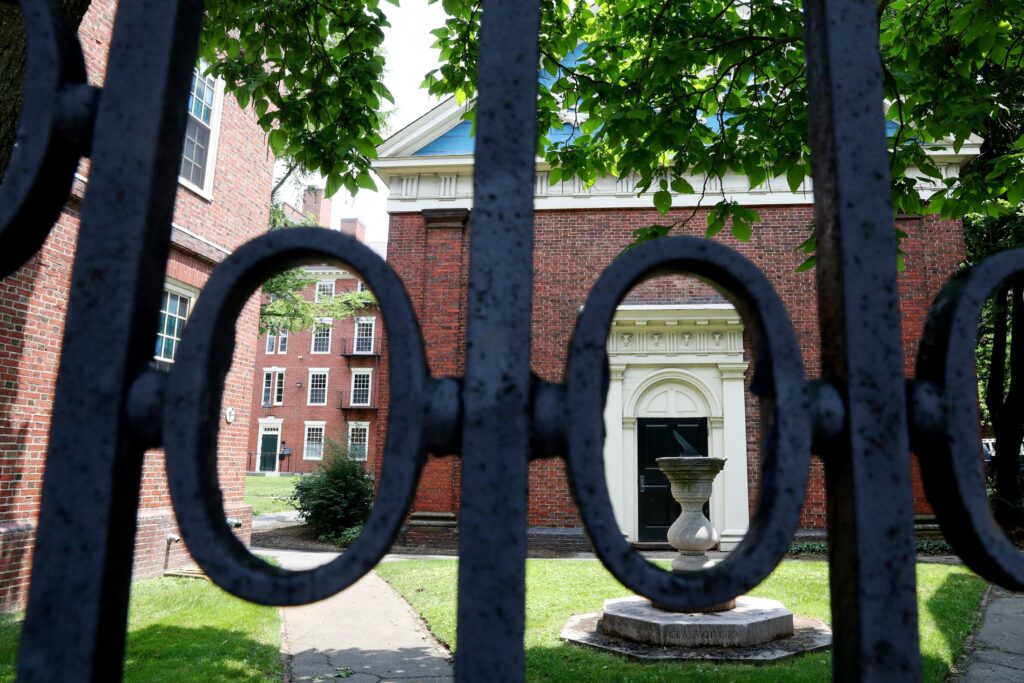The path forward after SCOTUS kills affirmative action
More of This

Most observers expect the Supreme Court to end racial preferences in college admissions sometime this spring following oral arguments this past October in two critical affirmative action cases. Given the looming decision, universities should already be looking at a variety of new pathsto diversity that don’t rely on race in order to preserve important gains in racial diversity won over the years. These should include favoring economically disadvantaged students and ending unfair preferences for the children of wealthy alumni and donors. But an especially promising approach—not yet widely employed—is to provide an admissions boost to students from families that have low (or negative) levels of wealth.
Banning of racial preferences will require selective colleges and universities that are committed to racial diversity to think creatively about how to open the doors to economically disadvantaged students, who are rarely found on today’s campuses.
Read the story on Slate
The racist SCOTUS decision that changed education forever
Speaking Of…

Almost exactly 50 years ago, Alex Rodriguez got his 15 minutes of fame when he was in sixth grade.
Now 61, Rodriguez recalls when news media swarmed his family’s small home in west San Antonio in 1973. “There was everybody and their grandma as far as reporters all over the place,” he said. “At the school, at the house, at the neighborhood. They were just going crazy.” The TV crews had cameras, he recalls, that “were bigger than a bazooka.”
In a way, the reporters were there because of him. In 1968, his father, Demetrio, had sued the state of Texas for underfunding his son’s school district, which was predominantly made up of low-income and Mexican American families. Alex recalls the third floor of his elementary school being condemned; when it rained, water would pour down the stairs. Three or four students shared one textbook.
Read the story on Vox/Apple News
Conservative judges are trying to kill the social safety net
Less of This

During his State of the Union address on Tuesday, President Joe Biden criticized Republicans for proposing to “sunset” Medicare and Social Security every five years. In response, many Republican lawmakers booedthe president, prompting him to quip, “So, folks, as we all apparently agree: Social Security and Medicare is off the books now.”
Perhaps these Republicans really do disagree with a plan put forth by a member of their leadership mandating periodic expiration of popular entitlement spending. But at least some of their judges are all for it—and want to transform the idea into constitution law. Recently, the 5th U.S. Circuit Court of Appeals crafted a theory that would empower courts to strike down mandatory spending on federal programs, compelling Congress to either reappropriate the money or let the programs die. This radical and antidemocratic reading of the Constitution would threaten Medicare, Medicaid, Social Security, the Affordable Care Act, unemployment benefits, child nutrition assistance, and so much more. Democrats and Republicans would be foolish to ignore the rebellion against federal spending that’s brewing in the 5th Circuit.
Read the story on Slate
Retiring progressive judge is worried about women in her state
Perspective

On Jan. 5, South Carolina became the first state to uphold a constitutional right to abortion since Roe v. Wade was overturned. Justice Kaye Hearn, the only woman on the state’s Supreme Court, wrote the majority opinion in the case, arguing that South Carolina’s constitution includes a right to privacy and “few decisions in life are more private than the decision whether to terminate a pregnancy.” The 3-2 decision struck down a 2021 ban on abortions after cardiac activity is detected — roughly six weeks into pregnancy. The ruling made national headlines for the rebuke it appeared to deliver to a Republican legislature in a deeply conservative state.
Conservatives vowed to fight back, introducing two new bills: one that’s similar to the measure the court struck down, and another that would ban abortion after conception, with exceptions for rape, incest, fatal fetal anomaly and the mother’s life and health. Republican Gov. Henry McMaster decried the court ruling; “results-oriented reasoning threatens to disrupt our constitutional separation of powers,” he said. Then he announced he would file a petition for a rehearing in the case. On Feb. 8, the Supreme Court denied that request.
Read the story on Politico









